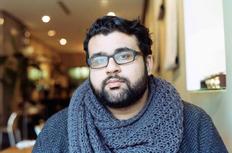by Asam Ahmad | Asam Ahmad is a writer and a co-founder of the It Gets Fatter Project, a body positivity collective by and for fat people of color. He Lives in Toronto. |
|
10 Comments
|
storiesStories of rage and rebellion. Archives
June 2017
Categories |

 RSS Feed
RSS Feed
